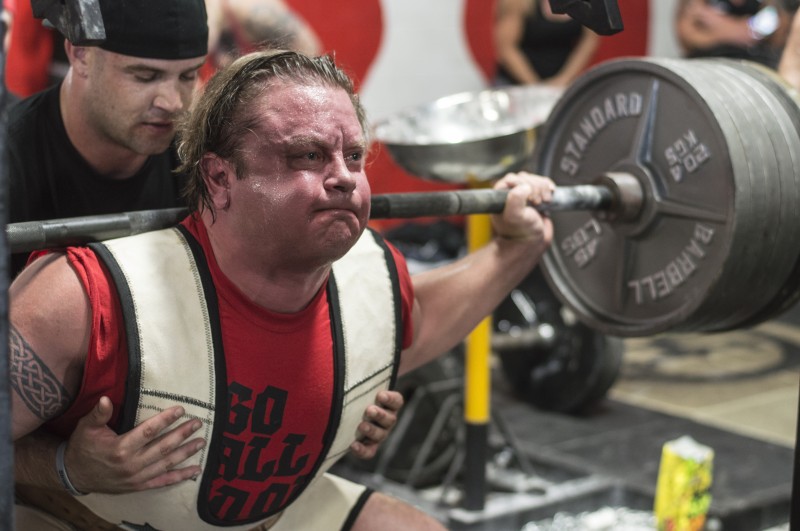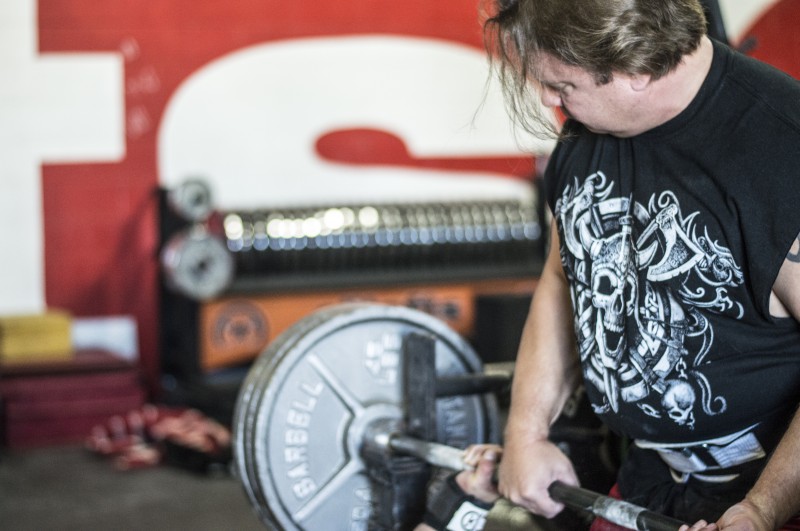
The other day someone asked me what I do when I hit a plateau. When I really began to think about it, I realized the honest truth was I never really had what I consider a true plateau. Now, that doesn’t mean I’ve been able to linearly add strength and size and improvement across the board on all physical capacities and attributes since day one. What it means is that since the day I started training, I’ve been able to consistently make improvements in at least something. While my bench may have stalled, I would be consistently increasing my deadlift. While my hypertrophy may have been stuck, I was improving my body composition. While my strength may have been stuck, I was building up my general fitness. There are many reasons you may be struggling in one area yet in another you are seeing improvements, but the point is that I have yet to meet an individual who has come to a true plateau without the ability to make any improvement whatsoever. I have, however, come across many individuals not willing to do what it takes to make progress.
RECENT: Setting an Atmosphere for Success
Let me start off by saying that the purpose of this article is to address the reasons that serious lifters are not making progress. Understanding that this is my own personal definition, let me give you what I consider to be a serious lifter. A serious lifter is someone who is consistent in their training frequency, effort, and purpose, and has maintained that consistency over a significant period of time. What this means is that a serious lifter is training multiple days a week, probably between 4 to 6, and when they go to the gym they are putting in serious effort towards a targeted purpose. They do not miss sessions regularly for any reason. That’s not to say that they never miss, but work, relationships, and life are arranged so that training is a top priority. They follow an intelligent training program, either written/guided by someone qualified or they themselves are quite knowledgeable in the nuances of program development. They do not go to the gym and just “figure it out on the fly." Each exercise, day, and program has a specific and defined purpose. Serious lifters maintain this consistency over long periods of time (years and decades). I’m not using performance or task as any qualifying measure here. If you or someone else fails to meet that criteria, that is the first place you need to look in order to address any lack of progress. If, however, you are a serious lifter, let’s move on.
You don't pay enough attention to your fuel and recovery.
Let’s face it: if you want good performance out, you've got to put good fuel in. The degree to which you do this is up to you. Some people are a bit more OCD and like to be super precise through counting macros, measuring out portions, and implementing a peri-workout supplement protocol, while others prefer to be more general in nature through making sure they’re eating relatively clean while consuming plenty of calories to fuel training. To what degree you decide to focus on nutrition is up to you, but it’s important that you do. Failing to provide your body with the calories and nutrients it needs to perform is a surefire way to dampen your progress.
Eating in a way that negatively impacts your health is another way to shoot your progress in the foot. On multiple occasions I’ve watched guys and girls focus on their nutrition, improve their body composition, and watched their numbers increase. On the flip side, I’ve seen guys and girls eat like crap, watch their body composition worsen, and watched their numbers slowly fall.
Your body’s ability to recover from stress is also vital to making continual progress. Like I stated above, your training must be a consistent amount of relatively high effort over a long period of time. Your body is a survival machine, designed to adapt to all kinds of different stresses, but you must give it the opportunity to do so. This means getting quality sleep on a regular basis and managing outside stress that could be taxing your body’s ability to recover. The amount of sleep needed will vary from individual to individual and will vary based on the amount of stress inflicted, but the most common issue is people just not getting enough rest. High stress and poor sleep habits can make it difficult for people to go to sleep or stay asleep.
Add a demanding schedule on top of that, and late nights paired with early mornings are very common. If you have these issues, it’s important you take control of them and work towards improving your pre-sleep schedule and habits to ensure you’re getting the rest you need. If you find you never quite wake up fully rested no matter how much sleep you get, I would suggest looking into a sleep study to determine if you have sleep apnea. A CPAP machine has changed many a lifter’s life.
RELATED: The Good, the Bad, and the Ugly of Using the Ultimate Performance Enhancer
Finally, if you have a significant amount of stress in your life, you need to find a way to manage it. Regardless if it’s work stress, relationship stress, or life stress, the more it wears on you, the more likely it is to have a negative impact on not just your performance but also your satisfaction with day-to-day life. Do yoga, meditate, pray, talk to a counselor, or go fishing. Whatever helps you alleviate stress, do it, and you will find your recovery and performance improving hand-in-hand.
Your friends suck.
It’s amazing what happens when likeminded people get together. Put a group of people together focused on building one another, working together toward progress, all focused on one goal, and great things will happen. Add in one negative person to the group, let them find some likeminded people, and you will see that virus grow until it shuts down the entire system. I’ve seen both of these happen amongst multiple teams I’ve been a part of.
Who you are will influence who you are attracted to and who you spend time with. Many times, trying to change one or both of those can be incredibly difficult because we have an innate biological fear of change. We find comfort in the status quo, we fear the chance for failure or lack of acceptance, and we don’t enjoy being outside of our comfort zone. But if you’re stuck in place and haven’t been making progress, what do you have to lose? There is opportunity out there if you’re willing to make a change.
The change required could show itself in many different ways. You may have to join a new gym, where you’re around people better and more intelligent than you, who are willing to push you. You may have to stop spending time with certain people who try to bring you down or enable you to keep pulling yourself down. You may have to take a look inside and realize your attitude sucks and that you’re keeping yourself from being around the right people because of it. If your progress has stalled and you find yourself stuck in a plateau, look around and see if you’re spending time around the wrong people and/or if you’re preventing the right people from wanting to spend time around you.
You think you're special.
The first 1000-pound squat was accomplished by Lee Moran back in 1984. The first 600-pound bench was done in 1967 by Pat Casey. In 1969, Don Cundy deadlifted 800 pounds. These are accomplishments that few lifters will ever come close to achieving, all done before the internet and internet coaches, before all the current lifting gear, before every lifter kept a set of bands in their bag, and before foam rollers and mobility WODs. Bodybuilders of the 60’s, 70’s, and 80’s, both male and female, also look far better than many serious lifters will ever come close to, all before YouTube and Instagram, before pre-workout or peri-workout protocols, and before forums and pay sites. The amount of stuff that people think they “need” to make progress these days is ridiculous, and it seems I hear or see an example of it more and more regularly (I’d create a list for humor but I’m not trying to out anybody).
I’m not saying that any of the progress we’ve made since these examples is a bad thing; it’s actually a really great thing. But if you get wrapped up in the minutia and fail to take care of the big things, your progress is going to stall because you are putting the cart before the horse. If you’re having a hard time not making excuses and think you're special, there is almost always an example of someone in your same situation who found a way to get it done. Life is tough for special people, so stop making excuses and start focusing on the stuff that matters.
Training without progress is miserable. The monotony of the day-to-day grind with the results to go hand-in-hand can wear on you. If you find yourself in that position, ask yourself if you’re a serious lifter — someone truly putting in the consistent work required to make progress. If so, are you failing to focus on your nutrition or recovery? Have you surrounded yourself with the wrong people? Are you making excuses and thinking you’re special? Figure out where you’re messing up and make the change to see your progress head in the right direction.













3 Comments